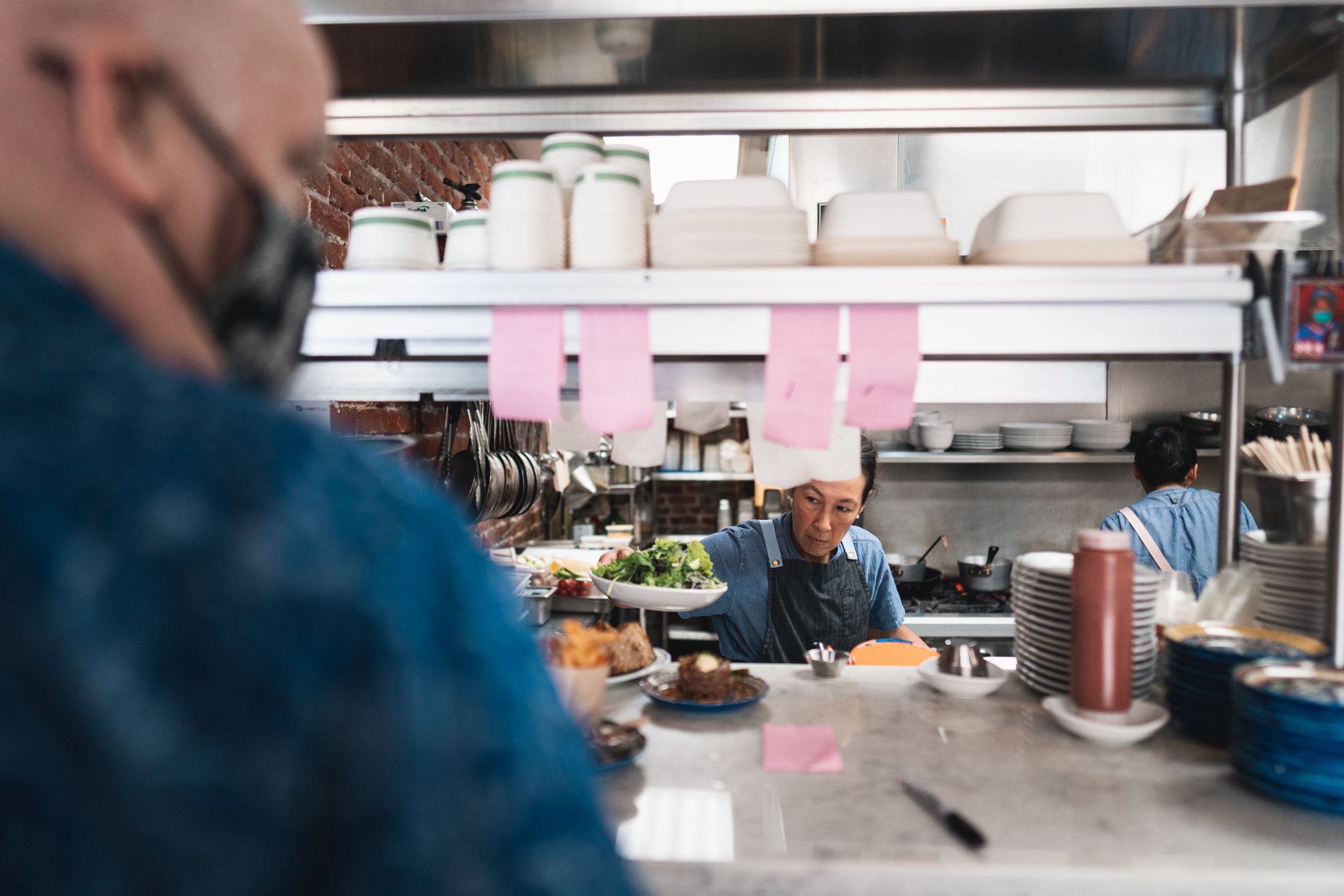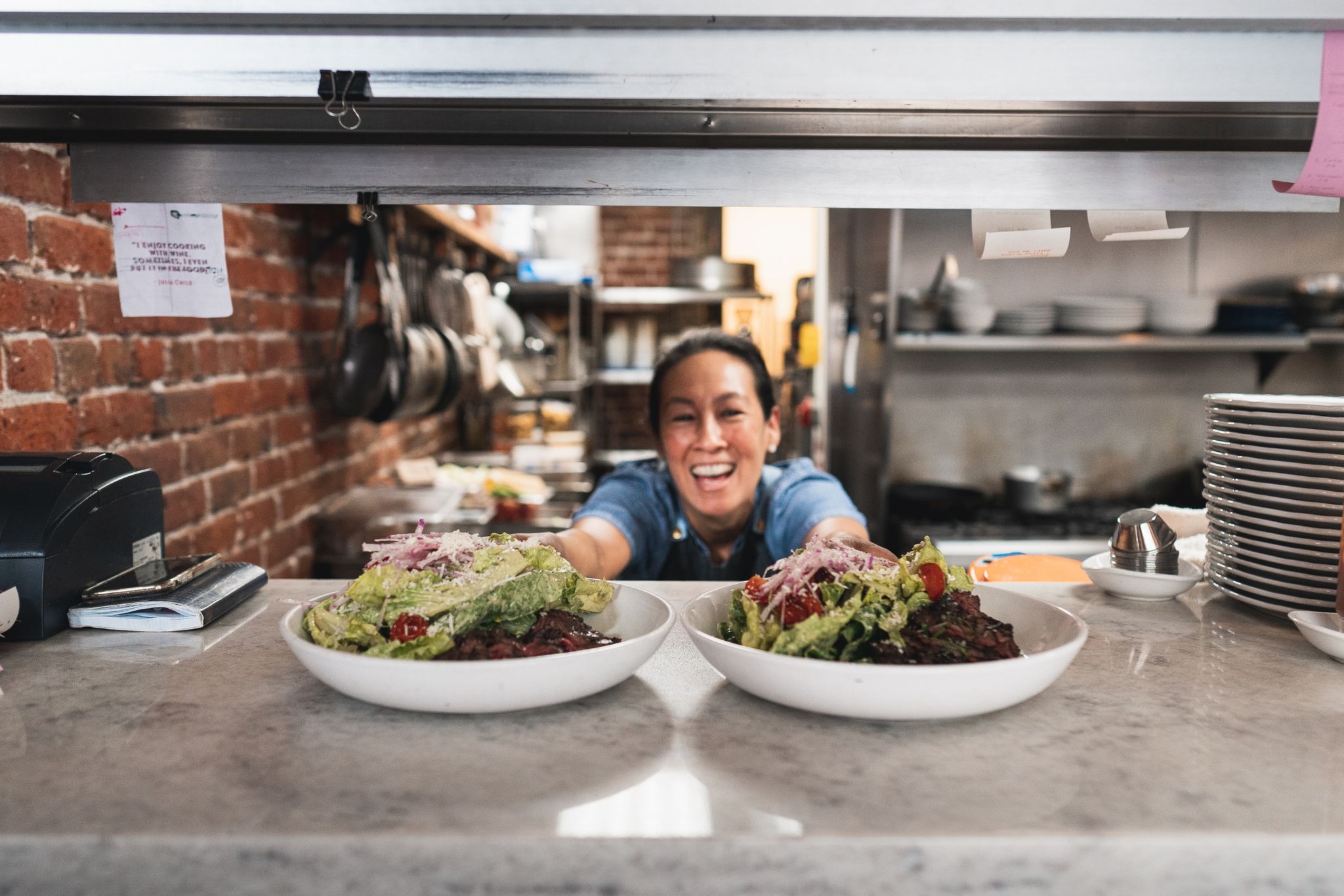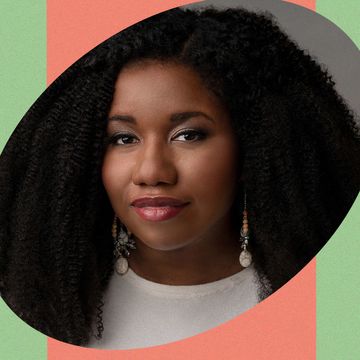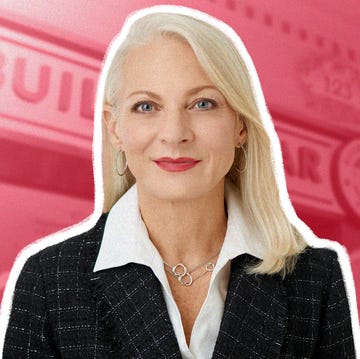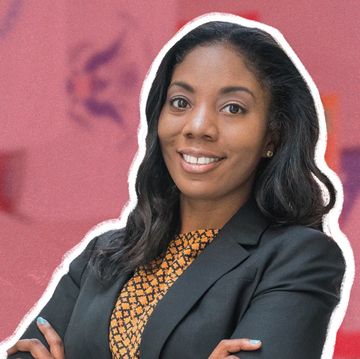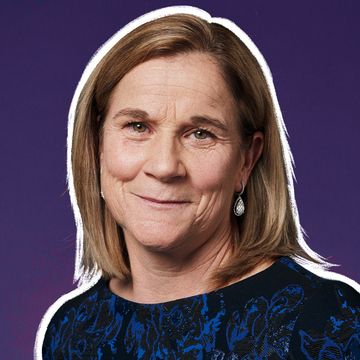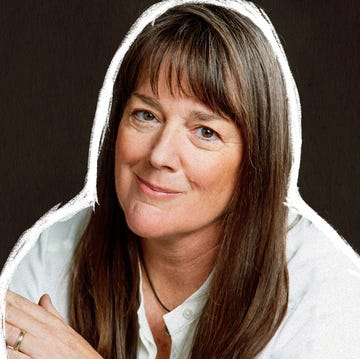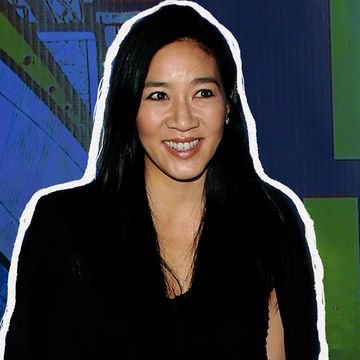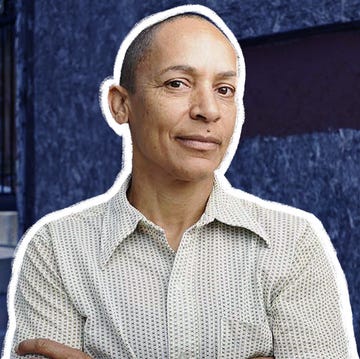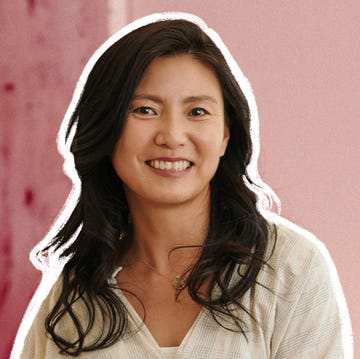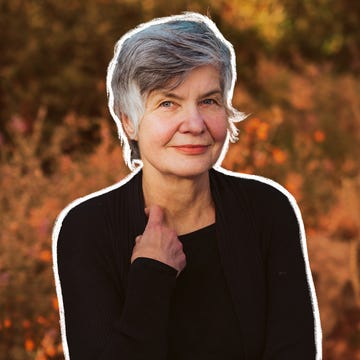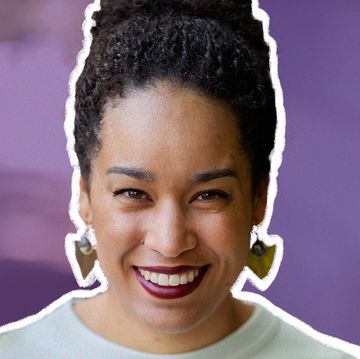In the ongoing Shondaland series Head Turners, we meet interesting women from every facet of life who are crushing it in their careers. From artists and tech mavens to titans of the boardroom, these women are breaking barriers, and they’ll share how you can too.
Full-circle moments are rare, but they pack a life-affirming punch. In June, when chef Robynne Maii of Hawaii’s much-lauded restaurant Fête was the first woman of Hawaiian ancestry to be honored with a James Beard Award, the Oahu native was transported back to when she was a 25-year-old graduate student in food studies at New York University, attending the James Beard Awards for the first time. “There I was,” she recalls, “seeing all the famous chefs and the food writers I admired. It was super-exciting — and not so different from my latest experience.”
Following a litany of roles within the culinary industry, ranging from journalist to educator, Maii made a mid-career pivot when she opened Fête in 2016 in Honolulu’s Chinatown neighborhood. Disheartened by the trend of fine-dining meals with double-digit courses, during which Maii says the food “lords over the table,” she instead puts people and their celebrations first. Maii’s heartwarming, farm-forward food, which the chef describes as “lighthearted mashups of our favorite things,” such as a creative take on eggplant Parmesan with tomato compote and zucchini noodles, plays a secondary — albeit delectable — role.
In August 2021, Maii and her husband and business partner, Chuck Bussler, opened their next restaurant, Heyday, on the pool deck of the newly renovated White Sands Hotel in Waikiki, bringing trademark finesse to Hawaiian-inflected dishes like vegan lumpia and mahi-mahi meunière, modern throwbacks to a simpler era of eating. While Maii has managed to give poolside lunch a James Beard-level upgrade, she remains unfazed by her glory. “Chuck will tell me, ‘You don’t realize what this award means, do you?’” Maii says. “He’s right. Maybe I’m still in disbelief.”
The chef recently spoke to Shondaland about why it’s important to speak up, and what pastry her grandmother made that altered her appreciation for the craft of cooking.
LEILANI MARIE LABONG: Congratulations on being honored with the 2022 James Beard Award for Best Chef in the Northwest and Pacific region. How has life changed for you?
ROBYNNE MAII: It’s really surreal. Fête has gotten busier, which may seem like the obvious outcome, but we’re trying to keep balanced and provide the same experience that got us to where we are. We’re always careful about what we say yes to because it’s easy to say yes to everything. We only have so many people working at the restaurant, and their sanity is a high priority. Still, I always joke, “So, all the hard work is rewarded with more hard work?”
LML: You once left the restaurant industry because you didn’t think you’d make it. What happened?
RM: This was in 2001, and I was actually working at one of the best restaurants in New York City at the time. It was so intense, and the sexual harassment was out of control. I was barely making enough money to pay rent, and I was being sexually harassed, like, every single day. I thought to myself, “Is this how it’s going to be?” It was just ridiculous, so I tried to transition out of the kitchen into something that was in cooking but not in cooking.
My first day as an editorial assistant at Gourmet magazine was September 12, 2001. I was actually at the courthouse near the World Trade Center on 9/11 because I had to appear in person to get out of jury duty. My parents taught me to always be the first person in line for all civic duties and other things related to the government like renewing my driver’s license, so I was first in line at 8:30 a.m. to speak with the court clerk, and she processed my request quickly. I was on an uptown subway by 8:40 a.m. By the time I got to my stop at 96th and Lexington, both towers had been hit.
Anyway, I didn’t go back to restaurants for a long time. I eventually went into culinary education, running the culinary program at the Art Institute of New York City for five years, then developing a culinary program at Kingsborough College in Brooklyn in 2009. I got to work with a lot of starry-eyed young people who wanted to be chefs.
LML: What do you want to say to today’s aspiring chefs who are on the restaurant path and maybe stuck in toxic kitchen environments?
RM: That’s a very complicated question. Do you want to spend your time trying to change the culture of a workplace that you’re in? To prevent that situation, do your homework. Spend time researching the restaurant, researching the chef, talking to people who have worked at the restaurant. Ask if you can stage for a two-week period so you can really get a sense of the kitchen culture. It’s good for the restaurant, [and] it’s also good for the potential employee.
In general, I wish I had spent more time talking to people that I admired or that I was just curious about. Maybe I wouldn’t have felt so alone at times. I think people assume that if you’re successful, you’ve always been successful. Or if you’re the successful person, you think that no one really wants to hear about how hard it was for you. But I think someone who’s at a crossroads could really benefit from those stories.
LML: You’re your own boss these days, but do you still feel the effects of being a woman in a male-dominated business?
RM: Right here, right now, it’s as good as it’s ever been. It happens less and less, but I still get stereotypical treatment. Sometimes, people come to Fête and assume I’m the pastry chef and that Chuck is the owner.
We went to a city council meeting to get an honorary certificate, and one of the council members came up to me and shook my hand. She’s like, “Oh, you’re the cook.” And then she looked at Chuck and said, “But you’re the owner of the restaurant. Congratulations.” That happened just a few weeks ago, but even in the first three or four years of the restaurant, I’d be placing our meat orders with our suppliers and [would be] constantly asked if I knew what I was doing with the proteins. “Do you know how to cook that? You have to braise it really slowly.” Ridiculous.
LML: Which chefs have been your guiding lights in the culinary arts?
RM: Not surprisingly, they’re all women: Judy Rodgers, Gabrielle Hamilton, Rebecca Charles, Suzanne Goin, Barbara Lynch, Alice Waters. They are people who cook[ed] traditionally, respecting and honoring the food, bringing out the best in the ingredients. That’s how we cook at Fête.
And that’s how our grandmothers cooked. They made something delicious out of the humblest ingredients. My first cooking memory is scrambling eggs with my maternal grandmother, who is a great cook and a fantastic baker. As a little girl, I would eat her mini croissants so greedily, just shoving them into my face. She would say to me, “You know, it took grandma a really long time to make those.” And I’d be thinking, “They’re so little. How hard can it be?” Then, I went to culinary school and learned about laminated dough. I thought, “Oh, my God, my grandmother taught herself how to do this.” Incredible.
LML: How much of your success do you attribute to hard work, and how much do you attribute to luck?
RM: The harder I work, the luckier I get, as people say. Hard work and luck go hand in hand. I really attribute my work ethic to my parents because they always worked really hard, but also to my undergraduate dance education at Middlebury College. They wouldn’t let us dance in front of mirrors. They would say, “We don’t want you to get caught up in what you think dance should look like but rather how dancing feels.” From young adulthood, I wasn’t afraid of just doing.
The problem is people are afraid of the time it takes to get good at something, but you have to start somewhere. Take your business idea in baby steps. If you think you’re going to write an entire business plan in one day, yeah, whatever. Not gonna happen. But if you say you’re going to write your mission statement in one day, now you’re talking. People have these crazy ideas about what it takes to create something. It’s a lot of hard work, but if you take it in pieces, the dream isn’t insurmountable. It’s within reach.
This interview has been edited for length and clarity.
Leilani Marie Labong is a San Francisco-based writer who has contributed to Elle Decor, Architectural Digest, Travel + Leisure, San Francisco Chronicle, and Coastal Living.
Get Shondaland directly in your inbox: SUBSCRIBE TODAY

